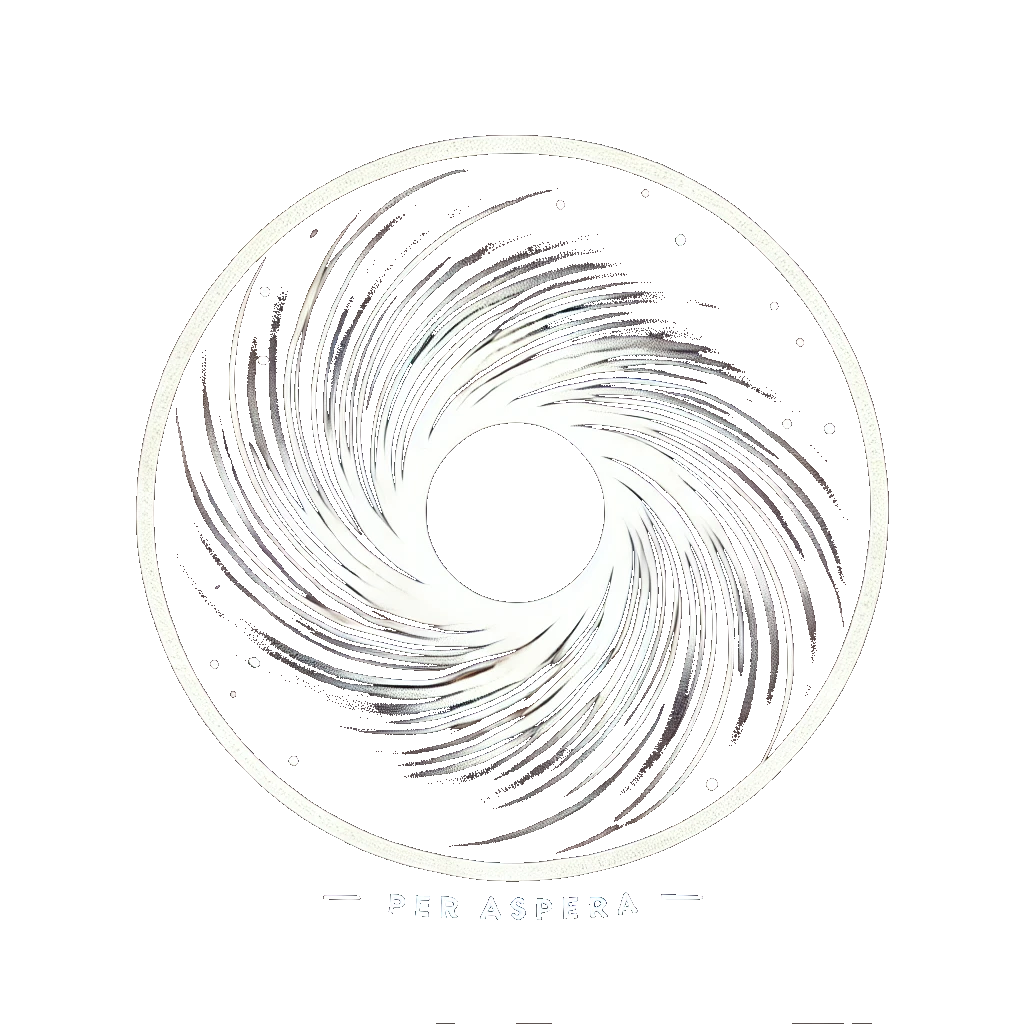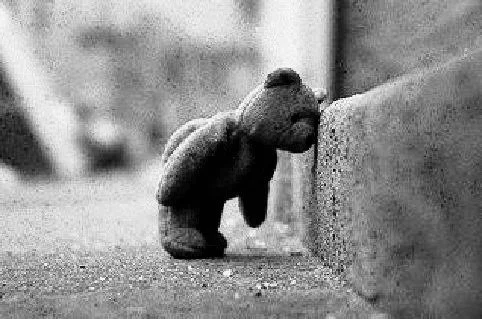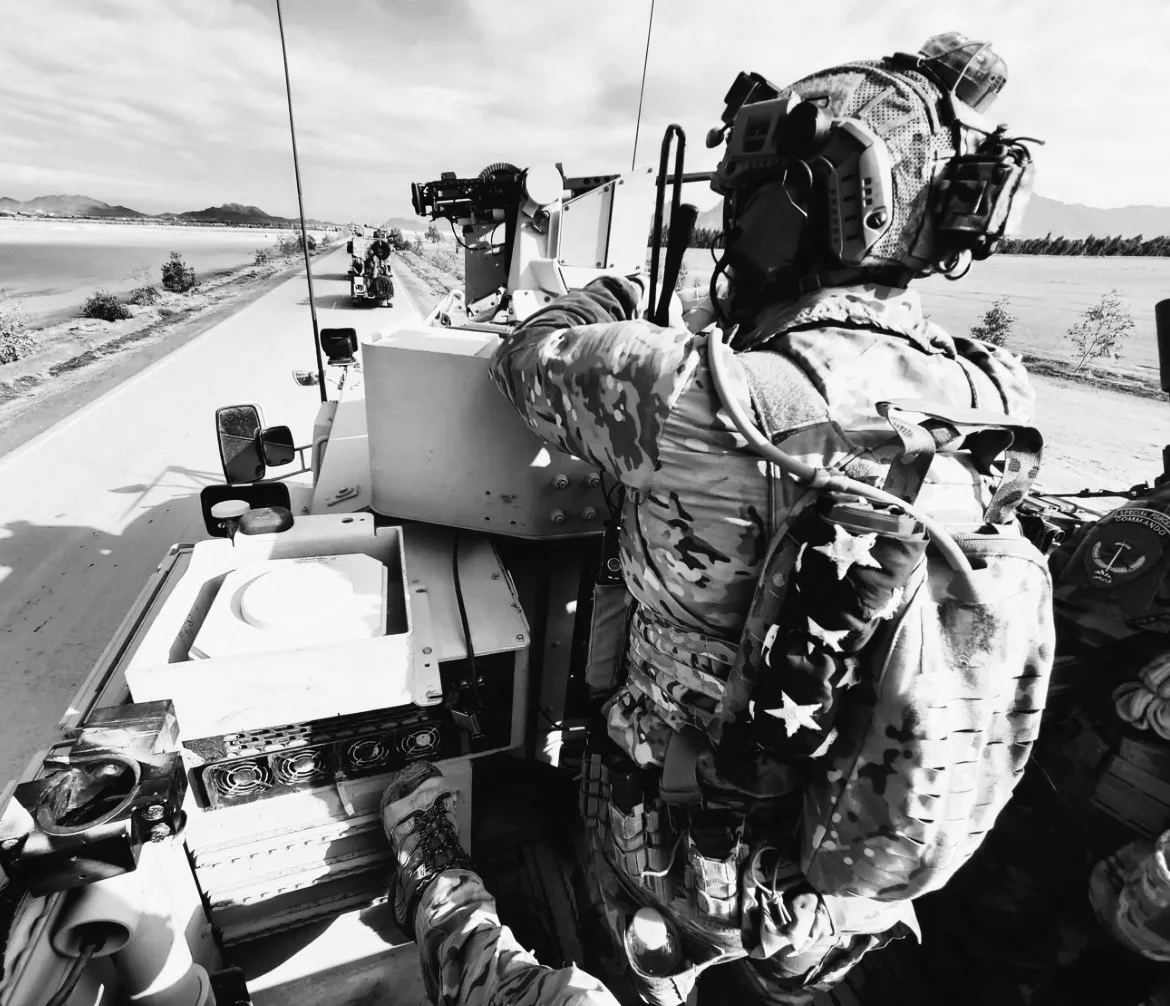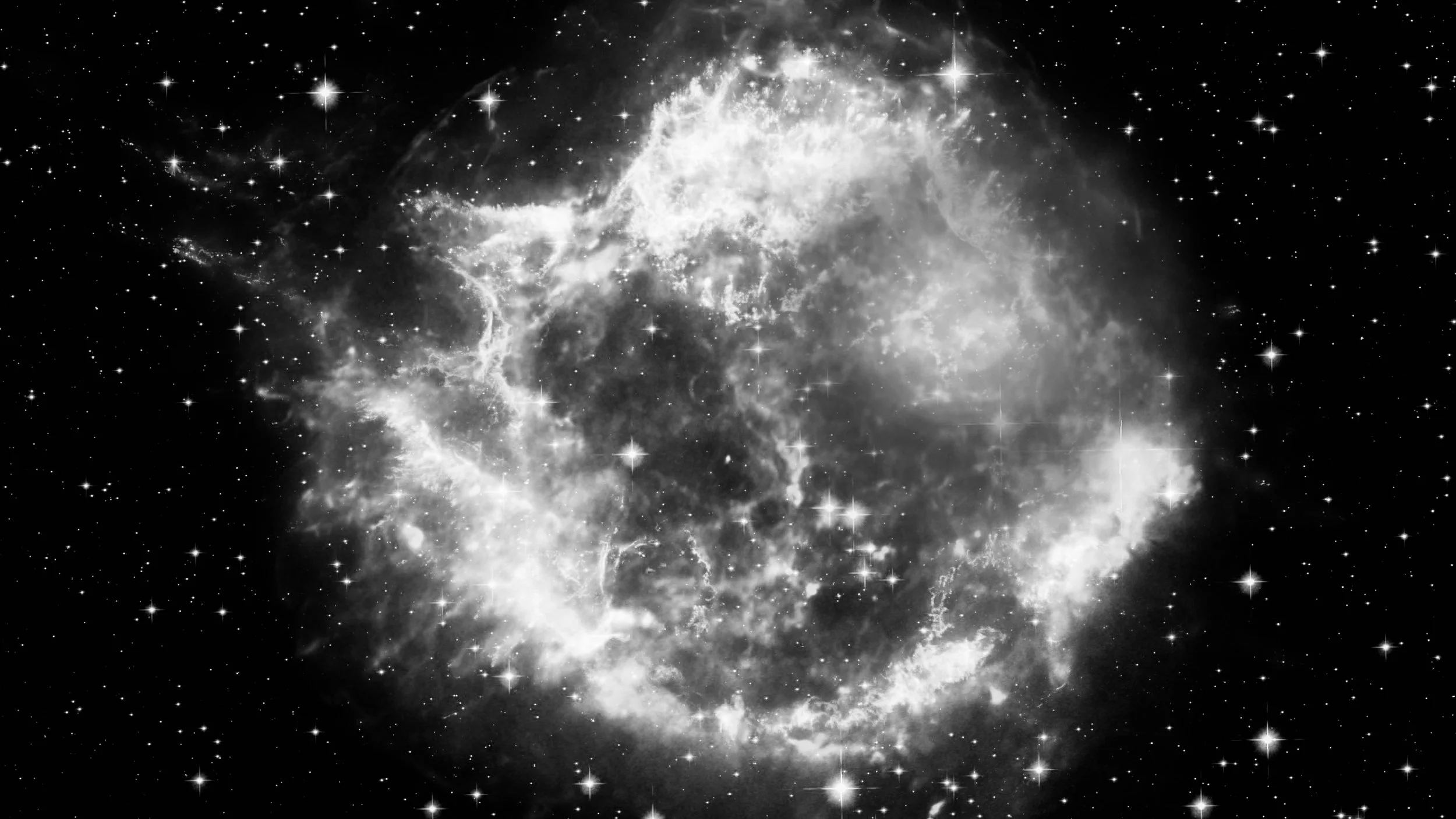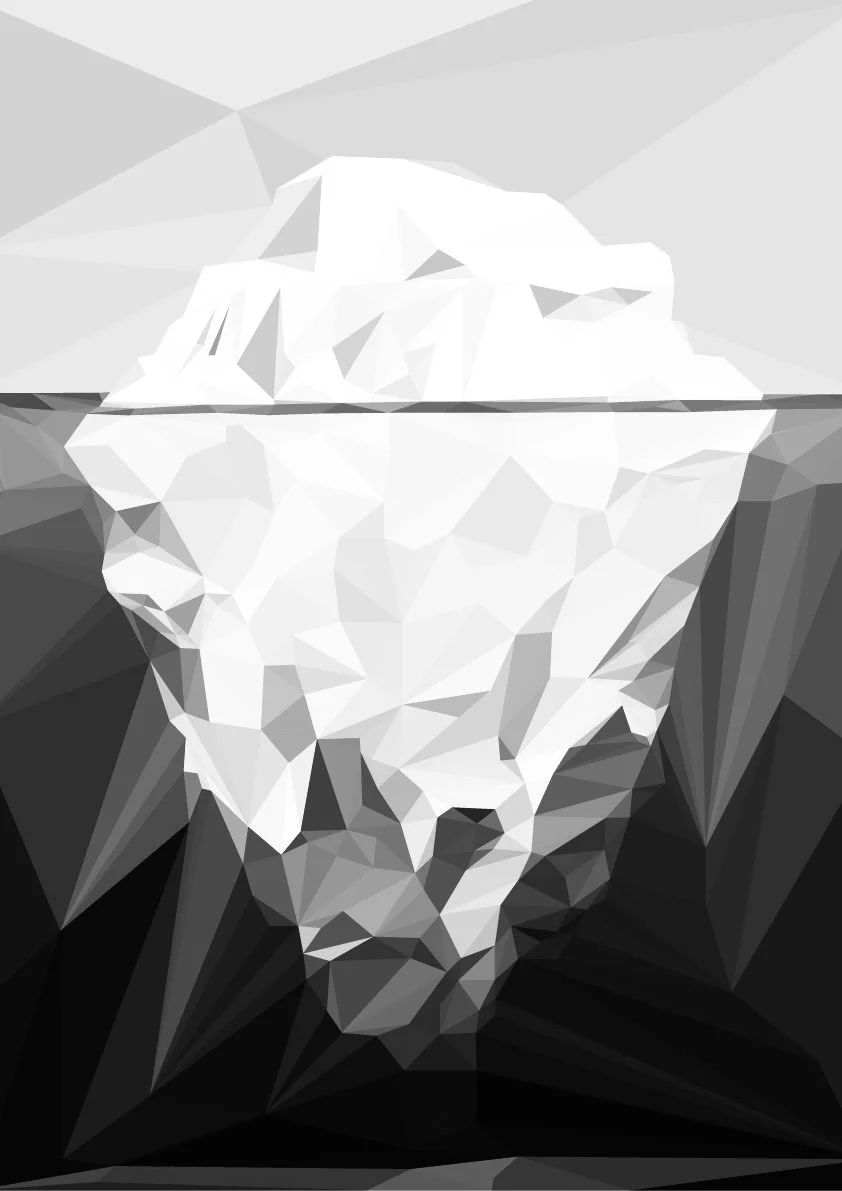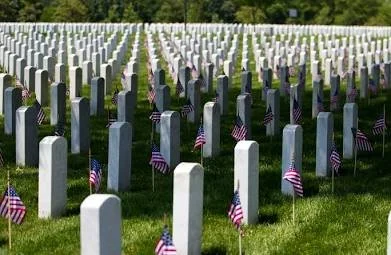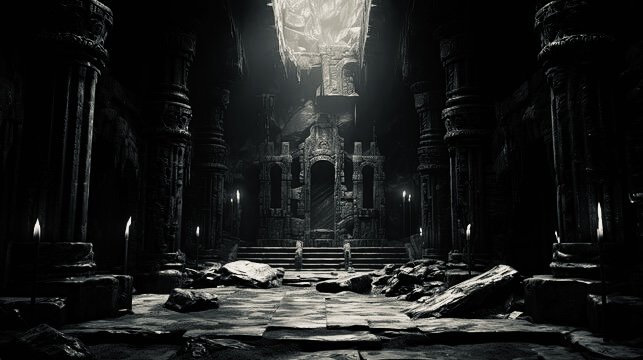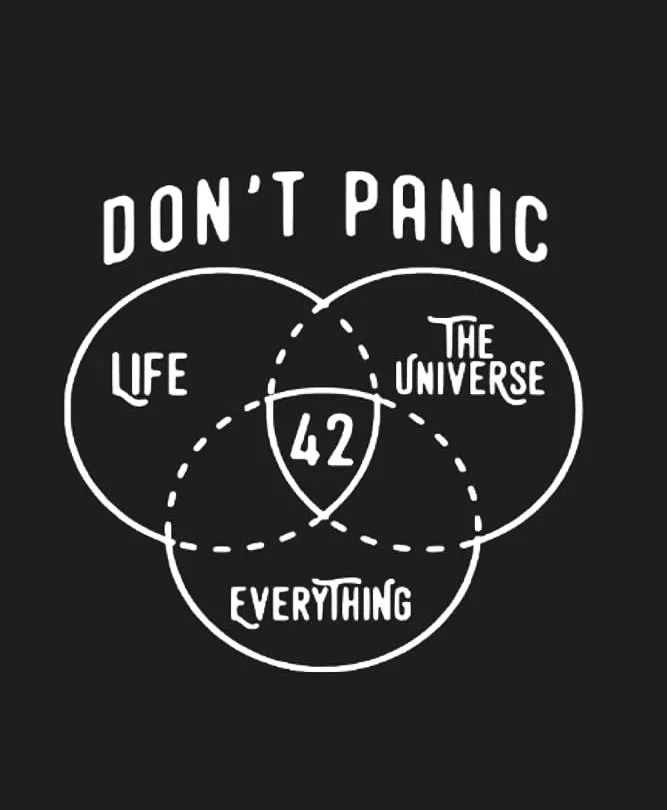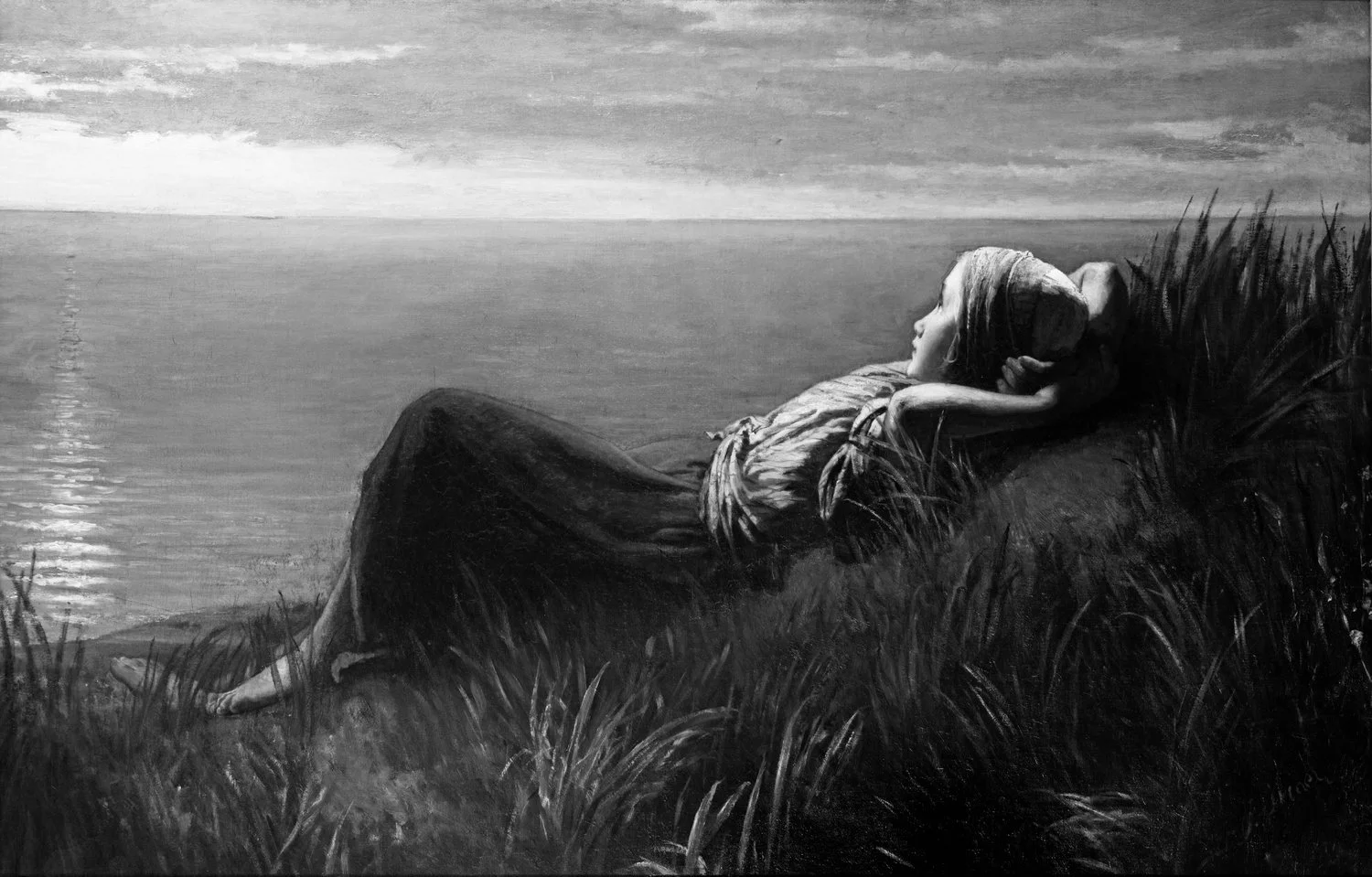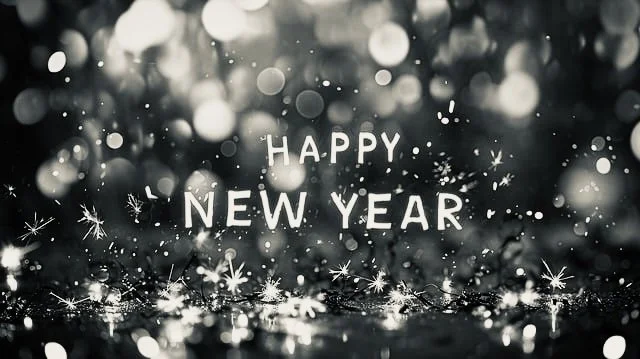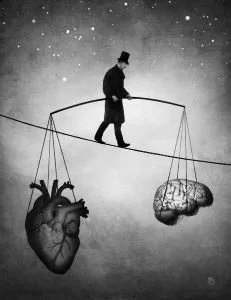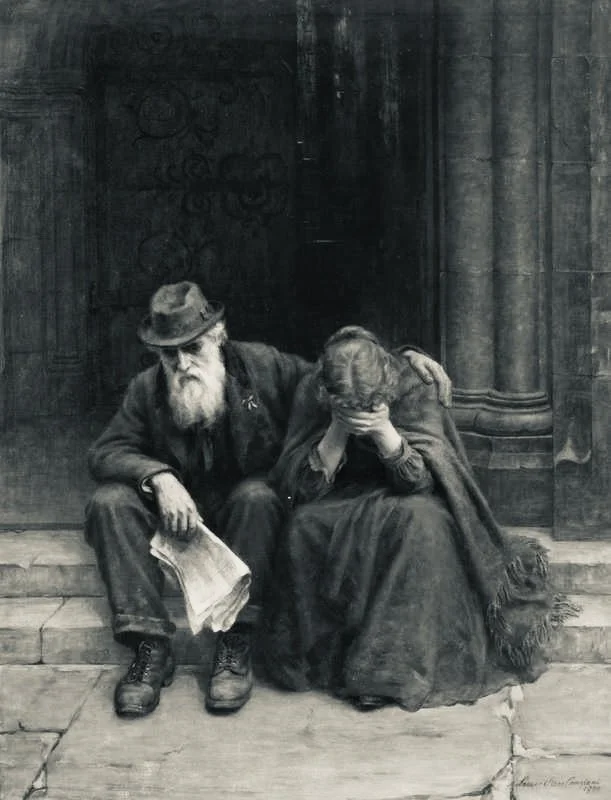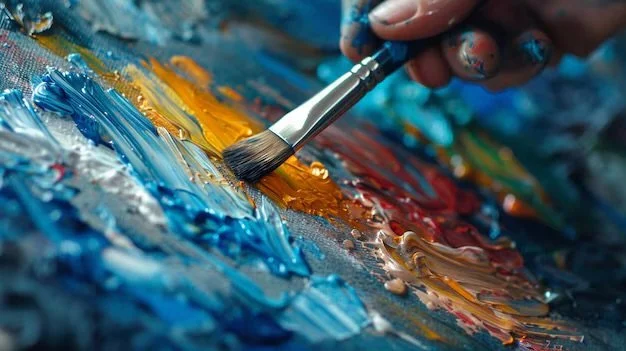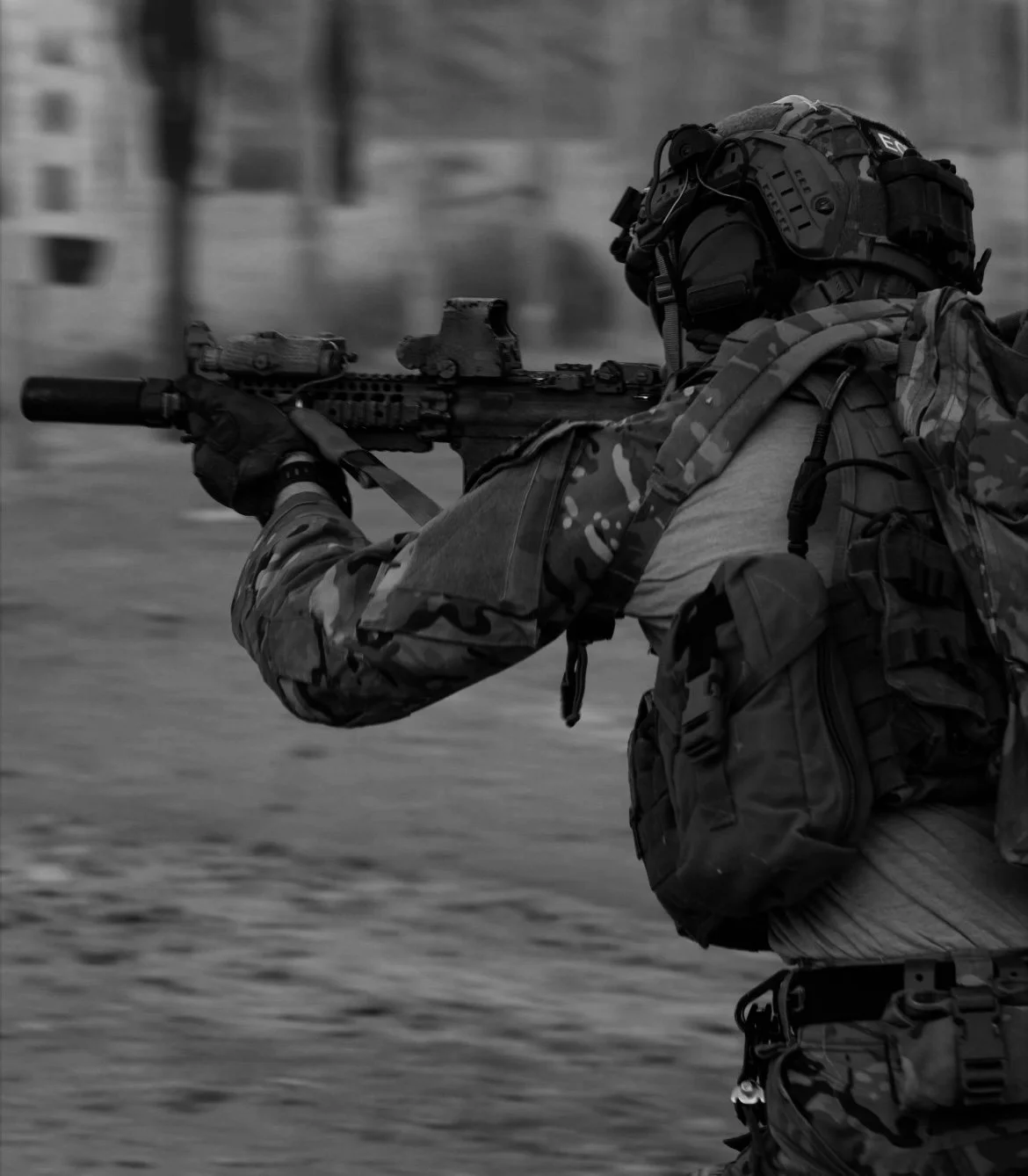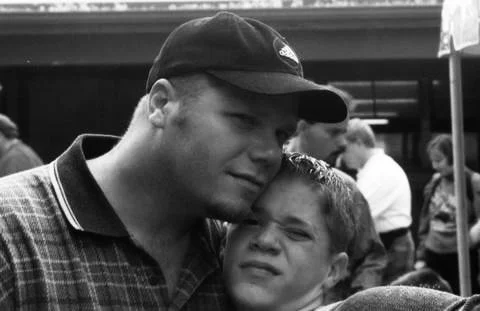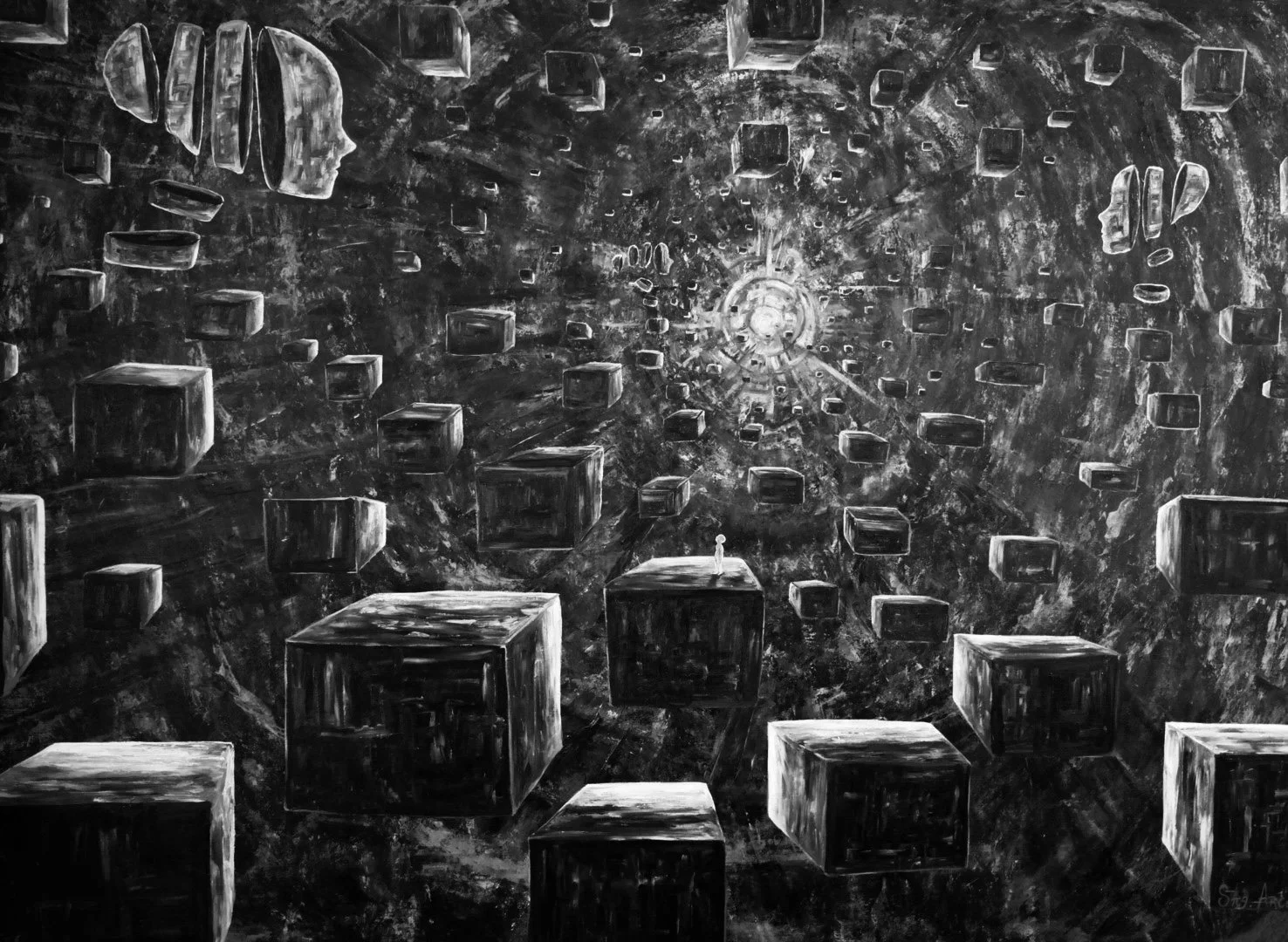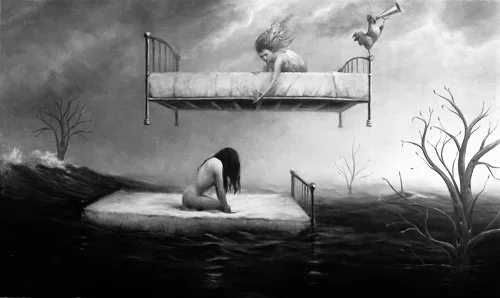Still waters run deep
Pools with shallow sections have always felt dishonest to me. They exist for safety, for ease, for comfort—for play. They let you believe you’re in the water without ever actually surrendering to it. You can wade, splash, and pretend, but your feet are still firmly planted on the bottom. There’s no risk. And without risk, there’s no truth.Pools with shallow sections have always felt dishonest to me. They exist for safety, for ease, for comfort—for play. They let you believe you’re in the water without ever actually surrendering to it. You can wade, splash, and pretend, but your feet are still firmly planted on the bottom. There’s no risk. And without risk, there’s no truth.The deep end doesn’t lie. The deep end doesn’t negotiate. It demands respect. The second you step into it, you know the rules have changed. The water no longer supports your fantasy; it strips you bare. It doesn’t care about what you say you can do—it asks you to prove it. And if you can’t, it will show you, without hesitation, exactly where you stand.Thats why I don’t support a shallow section in the swimming pool. Water should be deep. Sure, someone who doesn’t know how to swim might get it in his head to try, realize it’s a serious thing, and then flail about dramatically as a prelude to drowning. Right before going under he will know everything he could not have possibly learned in knee-deep water. He might also realize the whole point of the deep end is that you don’t go in alone.That’s the whole point isn’t it. That moment before going under. Pure honest clarity. Delusions of grandeur stripped away and you finally understand what’s at stake. Life…Struggle is inevitable, drowning is always possible, probable even. But survival, growth, LIVING are all bound to connection. We yearn it, we need it, human beings are hardwired as social creatures. But you’ll never learn that in shallow water. The deep end teaches everything, but only if you accept the danger and reach out for someone who will make the jump with you.The hardest part isn’t stepping into the deep. It’s admitting you can’t stay afloat forever on your own. It’s asking for someone to stand on the edge with you, to leap beside you. And here’s the truth that burns: asking someone to jump into the deep with you is not the same as asking them to learn to breathe under water.Opening up isn’t about pulling another soul down with your weight. It isn’t about drowning together. It’s about trusting that you can both fight, both flail, and both rise toward the surface—side by side. Connection doesn’t mean transferring your suffering onto someone else. It means refusing to disappear into silence, refusing to go under without reaching out.That’s where we go wrong. We confuse vulnerability with burden. We stay in the shallow end, afraid of pulling others into our struggle, so we never let them in at all. But the truth is, nobody learns what it means to live in safety. No one understands depth by keeping their head dry. If you want to know what matters—love, loyalty, resilience—you only learn it by taking that plunge, together.Still waters run deep. Not because they are calm, but because they conceal weight, current, force. Life is the same. On the surface you can appear steady, composed, unshaken. But beneath, the pressure is real. And sooner or later, you have to decide: do you stay where it’s safe, or do you risk the truth hiding in the deep?The deep end doesn’t promise survival. It promises honesty. It promises clarity. And if you’re lucky—it promises the saving grace of a hand reaching for yours in the water.Because the shallow end is a lie. The deep end is where you finally learn to live.The human condition
The human condition is learning to live, love and create meaning in a universe that guarantees you lose it all.The human condition is learning how to live, love, and create meaning in a universe that guarantees you’ll lose it all.This is the truth that shadows everything we do. No matter how much we build, no matter how fiercely we love, no matter how carefully we guard what matters to us—it will be taken. Time will take it. Change will take it. Death will take it. We live under this certainty, and somehow, we are told to hope.But hope is not the simple blessing people imagine. It isn’t just light in the dark—it is a risk, a wager, a vulnerability. Hope can feel like betrayal. It raises you up with promises of better days, of healing, of reprieve—and when those promises collapse, it leaves you lower than before. Hope cuts twice: once when it lifts you, and again when it drops you.I have the power to hope. To reach out my hand to those who are hurting. To believe, for them, that healing is possible. And I DO believe it. For them. When I look at the wounds of others, I can see paths forward they often cannot see for themselves. I can tell them they matter, that they have paid enough, that change is within reach.But when I turn that hand toward myself, everything falters. Because to hope for myself means to accept that I am hurting, and then to trust that my pain deserves healing. And that is the part I cannot quite believe. Hope feels like something that will expose me—something that will prove me foolish if I reach too far.So I’ve learned to distrust it. To treat hope like a devil that always arrives with hidden costs. And sometimes, it feels easier to push it away. To expect nothing, so that disappointment cannot carve me open again. To live inside resignation, where at least the ground doesn’t move beneath your feet.But resignation is not safety—it is suffocation. Without hope, nothing changes. Without hope, the hurt remains static, permanent, calcified. Without hope, there is no hand reaching out at all, not even to yourself.And so, against all dread and all suspicion, the only way forward is to risk it. To extend that hand anyway—not to the whole world, but to the fragile, frightened child inside who has been waiting far too long to hear the words: You have suffered enough. Your pain is real. You deserve to heal.This is not trust in hope as a friend. It is not blind faith in its promises. It is choosing to live with its danger, to allow just enough of it to keep moving, even if it may betray you again.The human condition is tragic. But it is also stubborn, defiant. To live knowing you will lose everything, and still to love, still to hope—that is not weakness. That is rebellion.Wake
His wake washes over them, and travels, crashing against distant, unseen shores.I watched a video of an old friend’s memorial today and it reminded me of how easy it is to get caught up in trivial shit, to make problems where none exist, or where issues that are personally irrelevant appear to have meaning. When I was on active duty I had a daily litmus test, friends or friends of friends were out there risking their lives every day, and every so often — with greater frequency than is possible to integrate — they didn’t come back. And that kept me clear, living honestly, in a relationship with what mattered instead of being overly-influenced by things that didn’t. These days I don’t have that test so when something, a reminder, does come along to shake my tree and wake me, it does so like a hammer, bringing all of the old memories with it. I cry. I shake. I cannot sleep. Yes, I cry for lost friends and loved ones but I also cry over all of the time I waste on shit that simply DOES NOT MATTER. When our needs are taken care of, when we don’t have to fight to exist, we create problems to solve (or unsolvable ones that guarantee we remain eternally occupied). One might say that grappling or fighting, while being recreational, does the same thing. I had never thought of it as such but it is, and yet, it teaches universally applicable and important lessons that trivial, made-up problems do not — and if they did we would be living in a very, very different world.Pretending to value life is different than truly doing so. And by pretending, I mean, to speak words and repeat slogans, and march, and shout in place of (as surrogates for) actually having lost something of dear, dear value, something or someone whose loss utterly changes the landscape of one’s life, and of many other lives. After SFC Lowe died in 2016 many lives were irrevocably changed; he was our inspiration, the brightest burning flame, a marker of human potential, of who we might become — as Soldiers, and men. At his memorial, Jenny, his wife displayed a painted image wherein Tim appeared as the constellation of a bear, below which, earthbound, she and her cubs made their way forward through a landscape that would never be the same.It wasn’t long after when I experienced my most person loss with SSG Travis. I still feel and witness his effect upon the world, upon the people he loved and who loved him, those of us he rescued in those mountains and those he (still) saves and guides daily with the example he set, and how fiercely he loved. His wake washes over them, and travels, crashing against distant, unseen shores.I don’t want to imply that one loss is more important than another, that is not the point. I mean only to say that when loss hits close to home, when you cannot sleep or breathe or eat because of it, when you wished you had died in someone’s stead, it carries weight that distant, impersonal loss or injury or mistreatment does not.I would love to care more about things that happen to people and peoples I do not know, who live across oceans, in different cultures, speaking different languages and influenced by different histories, but I don’t. What affects me is the blood splashed on my hands, the individuals who were here and then suddenly not. Mentors, partners, friends, lovers, acquaintances who were more than that because they also did the activity I did and formed a close-knit circle to keep doing it on the fringes of society. My group is small and always has been. We did a thing that kept us separate, marginalized, and made us circle our wagons. We spoke our own language. So when any single one of us dies the effect on the whole is weight, is a wave, and we sometimes find ourselves drowning. Be curious, not judgmental.
Be curious not judgmental There’s a quote I keep returning to—one of those simple phrases that grows heavier the more life tests you:“Be curious, not judgmental.”It sounds gentle. Polite, even. But when you strip away the niceties, what it really says is this:Don’t assume you know me.Don’t reduce a person to their worst moment. Don’t mistake what you heard for truth. Don’t confuse surface with substance.Judgment is the shortcut we take when we’re too afraid—or too lazy—to ask questions. It’s armor for the insecure. It’s a defense mechanism dressed in righteousness. And we’re all guilty of it, in one form or another.I’ve been on both ends of that blade.I’ve judged.And I’ve been judged.People have made their minds up about me based on a sentence taken out of context, a secondhand story, or a look I didn’t know I gave. They saw fragments and thought they knew the whole. And maybe I’ve done the same—maybe I’ve looked at someone’s actions and forgotten they were human beneath the noise.But over time, I’ve come to see that judgment is almost always a projection.We condemn in others what we secretly fear in ourselves.Curiosity, on the other hand, requires courage.It’s asking why when it would be easier to walk away.It’s sitting in the discomfort of I don’t understand without trying to control or condemn.It’s choosing to believe that people are more than their pain, their past, or their public persona.And when someone chooses curiosity over judgment with you—when they look past the noise and ask, “What’s real?”—that is a gift.A rare one.That’s where gratitude comes in.I’m learning to be grateful not just for love and praise and easy days. I’m learning to be grateful for the people who give me space to be real. People who don’t flinch when I show my rough edges. People who don’t run when I’m honest about the mess I’ve made of things. The ones who look at me and don’t see the story others wrote, but say: Tell me your version.Gratitude isn’t just for the good.It’s for the good-hearted.It’s for the ones who choose to see you clearly—not cleanly.There’s a special kind of healing that happens when someone doesn’t hold your past against you. When they don’t make you prove you’ve changed. When they simply witness your becoming and choose to stay. Even if you’re still fumbling through it.I’ve made mistakes. Plenty.I’ve said things that didn’t land right.I’ve trusted people I shouldn’t have, and I’ve hurt people I didn’t mean to.But I’ve also grown.I’ve owned my shit.I’ve done the work—not to convince others I’m good, but to believe it for myself.And I’m deeply, deeply grateful to the people who’ve let me show them that.Who didn’t let perception override presence.Who didn’t buy the rumor but asked for the truth.Who didn’t need a perfect version of me to love the honest one.If you’ve got someone like that in your life—hold onto them.Tell them thank you.Not just with words, but with presence. With effort. With your becoming.And if you’ve ever been that person—offering someone else the grace to unfold, to evolve, to try again—thank you. The world needs more of that.We all carry stories we’ve never told.We all wear masks when we’re afraid we won’t be accepted without them.And sometimes, the bravest thing someone can do is ask: “Who are you, really?” and actually want to hear the answer.So here’s what I know now: • Be curious. • Give others the space to surprise you. • Say thank you—not just for what people do for you, but for who they allow you to be in their presence. • And never let judgment be the lens through which you view a soul.Because when it’s all said and done…I don’t want to be remembered for how quickly I categorized people.I want to be remembered for how deeply I saw them.And how deeply I let myself be seen.That’s enough.That’s everything.Lift the veil
There's nothing in the dark that wasn't there when the lights were on. Fear doesn't conjure demons - it reveals them. And most of us? We’re haunted. There’s nothing in the dark that wasn’t there when the lights were on.Fear doesn’t conjure demons—it reveals them.And most of us? We’re haunted.We wear stoicism like armor. Cool. Calm. Unflinching. The person everyone leans on when their world collapses. We become the stable one, the strong one, the rock. But if you chip away at that surface, you’ll find something else. Not steel—scar tissue. Not detachment—fear.Because stoicism, in its purest form, is the ability to feel deeply without being ruled by those feelings. But the version many of us adopt? It’s not stoicism. It’s self-abandonment. It’s a mask built from silence, duct-taped with discipline, and worn so long we forget what our real face looks like.I used to think control meant power. That if I could keep my emotions buried, locked away like dangerous cargo, I’d be safe. That others would be safe. But control without connection is just another prison. You build your walls so high no one can get in—and eventually, you realize you can’t get out either.What’s worse is that everyone thinks they know you. They see the surface and assume it’s the whole. But what they’re really looking at is a fortress. And you built it because somewhere along the way, you learned that vulnerability came with consequences. Maybe someone used your openness against you. Maybe you reached out and no one reached back. Maybe the world taught you early that being soft was unsafe, so you became hard. Detached. Reliable. Unreachable.But the things you run from—they don’t vanish. They just sit quietly in the dark, waiting. And eventually, the noise of the world fades—the distractions, the deadlines, the workouts, the dopamine hits—and you’re left in that silence. Alone. And the echoes begin.That’s when the reckoning comes.I’ve been there. Still go there, sometimes. Trauma, injury, betrayal, neglect—they’re not just memories. They’re operating systems. They write the code for how we relate, how we protect ourselves, how we sabotage what matters most.I’ve burned bridges I should’ve crossed. Stayed silent when words could’ve changed everything. I’ve clung to composure while the people I love stood on the other side of my emotional barricade, waiting for a version of me I didn’t know how to become. And when the chance passed—when the moment was gone—I told myself it was safer that way. Cleaner. But the truth? It was just fear. Dressed in logic. Wearing my face.And I live with that. Not as some noble burden, but as a wound I finally stopped pretending wasn’t there. Because pretending doesn’t heal anything. It just keeps the bleeding internal.There’s a Japanese art form called kintsugi—the practice of repairing broken pottery with gold. They don’t try to hide the cracks. They highlight them. The damage becomes part of the beauty. The fracture is no longer a flaw—it’s the most honest part of the piece.That’s the kind of healing I’m after now. Not perfection. Not invincibility. Just honesty. Just presence.And maybe that’s why I’m writing this—because I know there are others out there wearing the same mask. Cool. Collected. Dying on the inside and smiling through it. You don’t have to keep doing that. Whatever it is you’re afraid to face—the pain, the memory, the guilt, the grief—it’s not going to kill you. What will kill you is never facing it at all. Living a life so armored that no one ever really knows you. Not even you.You don’t need to bleed in public. You don’t owe anyone your collapse. But you owe yourself the truth. You owe yourself the chance to speak the thing out loud. To let someone in. To finally, fully feel—even if it breaks you open. Because what comes after that is real.So here’s my offer:I’m not here to fix you. I’m not above you. I’m not whole, and I’m not trying to sell you a roadmap to enlightenment. I’m just someone who’s been through the fire and finally stopped pretending I didn’t get burned.If you need someone to talk to—if you’re scared to take the mask off—just know you’re not the only one. I’m here. Not as a savior. Just as a witness. And that’s sometimes all we need to start.So lift the veil. Just a little.Peek out.Take one breath deeper than the fear.There’s nothing in the dark that wasn’t already there.But maybe, just maybe, there’s something waiting for you on the other side of it:Not who you were.Not who you pretended to be.But who you could become—if you were brave enough to feel it all.www.peraspera-apparel.com/yourstoryPretend
Stars are dying, always dying. Flaring, caving, collapsing. But they don’t show it—not from here. From here, I can believe in permanence.
And that’s all we’re doing, isn’t it?
There is nothing in the dark that wasn’t there when the lights were on. Fear doesn’t conjure demons—it just reveals the ones we’ve always carried. And somewhere along the line, I thought that walking headlong into the dark made me brave. That testing my limits—physically, emotionally, existentially—meant I was overcoming something. Maybe it did. Maybe it didn’t. But with time, you start to see things differently.You learn that bravery isn’t the leap—it’s the crawl. It’s the quiet decision to keep going when everything in you whispers to stop. Because in reality the scariest thing isn’t actually the risk. It’s the repetition.I used to love the stars. Still do, I guess. Not because I think they’ll save me, but because they lie so beautifully. Because they let me pretend.Pretend that things last. That people last. That moments don’t slip through our fingers like sand, no matter how tightly we hold on.Stars are dying, always dying. Flaring, caving, collapsing. But they don’t show it—not from here. From here, I can believe in permanence.And that’s all we’re doing, isn’t it?Pretending. Clinging to the illusion that there’s meaning in the pattern, that the center holds, that things don’t rot and memory doesn’t fade.After everything—after all the versions of my life I tried to live, after all the masks and reinventions and the desperate search for a self that felt real—I find myself wanting to sink into silence.Not because I’m broken.Because I’m tired.And because stillness feels like truth.In the end, it’s never the grand things that matter.It’s the chipped coffee mug. The way someone said your name. The sound of laughter in a room you forgot you loved. The smell of old wood and rain.All the things that “didn’t matter”—those are the ones you’ll miss the most.But still—I get up.I get up, and I keep pretending.Because maybe that’s what hope is.A beautiful lie we tell ourselvesuntil it becomes true.Icebergs
I’ve shipwrecked on this iceberg several times in my life. New capability brought with it ambition that refused to be easily satisfied, and what I did to feed that came with more unforeseen costs. I changed on my way to achieving what I wanted and with that changed my peers, changed my friends, finding new and sometimes becoming unrecognizable to old. Social order shifts as our values evolve. And that cuts both ways.
Be careful what you wish for. Rather, concentrate on what you want. Do it consciously. Prepare for the outcome - whatever the outcome. Understand that what you are seeking is also seeking you - but your definition of it and your expectations may not be the same as its definition of itself.Or perhaps you seek appearance: what you see on the surface, without understanding what exists beneath it. When you achieve your goal it may be an iceberg with more beneath the obvious than you were prepared to handle.I’ve shipwrecked on this iceberg several times in my life. New capability brought with it ambition that refused to be easily satisfied, and what I did to feed that came with more unforeseen costs. I changed on my way to achieving what I wanted and with that changed my peers, changed my friends, finding new and sometimes becoming unrecognizable to old. Social order shifts as our values evolve. And that cuts both ways.In the physical I seek what’s unseen. I use it as a lens to see deeper, as a shovel to dig, as a knife to cut away. Sometimes writing this or describing it in conversation makes me realize how distant my use of the tool is from that of those around me. Still, I can only hold it by the same grip it has on me, and only wield it the way I understand it. Over the years what I was seeking also found its way to me.Each of us has a different relationship to training and physical activity. I’ve often wondered about the difference between who can “hurt” and who can “suffer”. I understand the difference and I embrace it but I resonate with the latter. It’s not so much intensity vs. duration as it is the external contrasted to the internal. Before I left social media for good I posted the following:“We value duration over intensity because the long route insists on introspection and self-analysis. For ourselves, success on the short intense route left too much down time to start believing our own bullshit. So we went long. When 24 hours non-stop wasn't enough we went longer. When 40 hours non-stop only hinted at lessons available to those who would invest more we went longer again. Finally, after 63 hours on the go we realized that we had found what we were looking for.”I found the truth of Self in those hours, with prejudice and pretense beaten out of me by effort and risk and deep physical and mental fatigue. Who I was and could be to others - according to their expectations - disappeared and true self stood up instead. This man could not be unearthed by intensity alone. The clarity I found at the end of long, expensive effort changed who I had learned to be from and for the people around me.That was years ago. And I’ve always believed it would take incredible effort, and risk, and difficulty to experience my self in such a way again. I’ve searched for it in competitions, on the mats, in the gym, in the A-zone up close or the small ring in the distance - concentrating so damn hard that the only thing left was an undistracted me - and I thought it needed to be hard, that the tighter I held on the clearer my vision would become. Sometimes I found myself in the crash of weights hitting the floor, or saw myself through the tunnel vision of 98% max heart rate. Once or twice I knew precisely who I was by way of the pain in my legs and the copper penny taste in my mouth. Usually though, the clarity came in the aftermath of effort, in knowing I held nothing back, in the glow of spent muscles, and an emptied tank, in realizing that no further effort would be required.Slowly, I began to understand that - after so many years of practice - I didn’t need the effort or the danger to experience the relaxed acuity of the aftermath. Maybe I don’t need to hold on until exhaustion forces me to let go. Maybe I can simply let go. And watch the half-truths and pretense drift away. I can sit, and breathe, and think/not think, and simply be. I know the years of pushing and thrashing myself were not wasted, that I needed that experience beforehand to allow me to learn a different means of reaching the same objective. I won’t ever give up on effort. I won’t stop using the physical to access the psychological depth I want to plumb but I do finally realize that “hurt” and “suffer” aren’t the only tools available to shape a deeper understanding.Remember their light
Happy Memorial Day: Remember Their Light
Today isn’t just about how they died.It’s about how they lived.We remember their courage, yes—but also their sarcasm, their stubbornness, their late-night jokes and early-morning grit.They were more than the day they were taken.They were moments—loud, quiet, messy, beautiful.And for some of us, the weight of that memory never leaves.We think about the times we laughed together, bled together, fought side by side.And sometimes—when the world slows down and there’s no one watching—we admit a quiet truth:We wish it had been us.Because sometimes it feels harder to live with their absence than it would have been to fall with them.But we didn’t.We’re still here.Maybe by grace.Maybe by luck.Maybe by something we’ll never understand.And that means something.It means we carry them forward.Not just in grief—but in action, in memory, in celebration.We don’t reduce them to a single day or a single sacrifice.We honor them by remembering who they were—and making sure the world doesn’t forget.We speak their names.We tell their stories.We live in a way that echoes their best days.They gave everything.And for that, we owe more than silence.We owe joy. We owe effort. We owe remembrance that doesn’t grow dim with time.So today—Raise a glass.Say the name.Tell the damn story.And when you laugh, laugh loud enough that they hear it wherever they are.Because Memorial Day isn’t just about mourning the dead.It’s about remembering the light they left behind—and making sure it never goes out.Participate
Memory is architecture.
You are here.
The architecture is happening with or without you.
Your identity is shifting whether you acknowledge it or not.
Most people live like they’re sleepwalking.Trapped in habits they didn’t choose.Speaking in words they didn’t invent.Thinking in patterns laid down by a past they can’t even remember.But memory is architecture.Every scar, every story, every forgotten corner you never bothered to clean out — it’s building the shape of your life whether you pay attention or not.Neglect it, and you’ll find yourself living in a house you don’t recognize, with walls made of regrets and windows too small to crawl through.There’s a terrible freedom in realizing this:Identity is negotiable.You’re not the person you were five years ago, five months ago, five minutes ago.You are being re-written right now.You get to decide if you’re the author or just another character left adrift by the storm.And storms do come.Nobody survives them by standing tall and pretending to be invincible.Strength isn’t the myth we were sold — not the steel jaw, the iron will, the clenched fists against the sky.Real survival is quieter.More complicated.It’s the man who breaks down crying and still shows up the next morning.It’s the woman who loses everything and somehow learns to love again.It’s the stranger who accepts that two opposite things can be true at once — and still keeps moving.Survival is acceptance of this contradiction.Holding grief in one hand and gratitude in the other.Knowing you are both broken and whole.Light and dark.Falling apart and rebuilding yourself at the same time.You don’t get to be a passive passenger in this life.You don’t get to sit this one out.You are here.The architecture is happening with or without you.Your identity is shifting whether you acknowledge it or not.The contradictions are stacking up like bricks in a wall, and you — only you — decide whether it becomes a prison or a home.So participate.Build with your own hands.Name your own ghosts.Laugh into the eye of the storm and walk forward anyway.Because even if you fail, even if you fall, even if you never get it perfectly right —You still deserve a life that feels like it was lived — not endured.The cost of truth
No one values the truth anymore.
Not really.
We say we do. We hashtag it. Tattoo it. Preach it in job interviews and first dates like it means something. But peel back the layers and most people just want their lies polished, not challenged. They want to be agreed with, not confronted.
They don’t want truth—they want comfort dressed up in conviction.
No one values the truth anymore.Not really.We say we do. We hashtag it. Tattoo it. Preach it in job interviews and first dates like it means something. But peel back the layers and most people just want their lies polished, not challenged. They want to be agreed with, not confronted.They don’t want truth—they want comfort dressed up in conviction.I don’t do comfort. I do truth.Because in a world where control is mostly illusion—where your life can collapse between heartbeats—the only real power you have is the words you speak. That’s it. That’s your weapon. Your compass. Your code.And if you give that up—if you trade truth for approval—you become just another hollow echo in a room full of people afraid to hear their own voice. People terrified of confrontation, allergic to reality, addicted to the soft edges of polite deceit.But let me be clear:Honesty isn’t cruelty.And telling the truth doesn’t make me an asshole.It makes me trustworthy.If the truth hurts you, it’s because it touched something real. And that’s not on me—that’s on whatever lie you’ve been holding onto like a blanket soaked in gasoline. You don’t have to like it. But I’m not here to entertain your comfort zone. I’m here to speak clean.I’ve watched too many people destroy themselves with false narratives—good people, capable people—rotting from the inside because no one around them had the spine to say what needed to be said. No one wanted to be the bad guy. No one wanted to risk honesty.But if we keep going like this—treating truth like it’s rude or dangerous or optional—then we deserve the consequences. We deserve the fallout. Because silence in the face of delusion is complicity. And every time you swallow the truth to spare someone’s feelings, you teach them how to live a lie a little longer.I don’t want anything to do with that.So I tell the truth. As best I can. Every time.Not for shock. Not for some moral high ground. But because I’d rather lose people being real than keep them by being fake. And if I have to walk this world alone, I’ll do it with my spine straight and my mouth clean.Talking is cheap.And lies are expensive.42…
42—the ultimate answer to life, the universe, and everything. A number with no context, no explanation. Just a stark, absurd response to an impossible question. The punchline, of course, is that the real problem isn’t the answer—it’s that we don’t even know how to frame the right question.
42—the ultimate answer to life, the universe, and everything. A number with no context, no explanation. Just a stark, absurd response to an impossible question. The punchline, of course, is that the real problem isn’t the answer—it’s that we don’t even know how to frame the right question.We spend our lives searching for meaning, trying to distill existence into something neat and digestible. We want a unifying truth, a single revelation that will snap everything into focus. Religion, philosophy, science—all attempts to carve a straight path through the chaos. But the universe isn’t built on clean resolutions. It doesn’t hand out blueprints or roadmaps. Instead, it leaves us breadcrumbs—fragments of understanding scattered across years, places, and people, waiting for us to gather them, to assemble something that resembles wisdom.Maybe, at some point, you learn that pain isn’t always the enemy—it’s a teacher. That love is both the most fragile and the most resilient force you’ll ever know. That certainty is a mirage, and the sooner you make peace with uncertainty, the freer you become. You learn the cost of arrogance, the weight of regret, the strange beauty of impermanence. Each lesson shapes your understanding, bends the arc of your perspective, but no two people will ever assemble the same puzzle.One person’s grand revelation might mean nothing to you. Someone may find purpose in faith, while another finds it in rebellion. Some see life as a test, others as an accident, and still others as an art project—something to be shaped, refined, destroyed, and remade. You could spend your entire existence collecting wisdom from those who came before you, but in the end, no one can hand you your answer. It’s yours to build, piece by piece.This is why searching for a singular truth is a fool’s errand. There is no one-size-fits-all revelation waiting at the end of the road. There is no cosmic judge handing out clarity to those who have walked far enough. There is only your answer, built from your experience, your suffering, your joy, your mistakes. The person next to you may walk the same path and come away with something entirely different.And maybe that’s the real meaning behind 42. Not that life is a joke, but that the joke is thinking there was ever just one answer. The universe doesn’t work in absolutes; it works in possibilities. Meaning isn’t something you discover—it’s something you create.SUMMER DREAMS…
Life is a short dream on a summer afternoon. One moment, you’re a kid, barefoot on the blacktop even though it burns, your shadow long and skinny in the late-day sun. The next, you’re older—maybe not old, but old enough to know better—standing at the edge of some nameless stretch of highway, watching the sky bruise and wondering how the hell the time got away from you.
Life is a short dream on a summer afternoon. One moment, you’re a kid, barefoot on the blacktop even though it burns, your shadow long and skinny in the late-day sun. The next, you’re older—maybe not old, but old enough to know better—standing at the edge of some nameless stretch of highway, watching the sky bruise and wondering how the hell the time got away from you.
You don’t get to choose what your mind keeps. Memory isn’t a scrapbook—it’s a junk drawer. It hoards things you don’t need, tosses things you wish you had, and every once in a while, it coughs up something you forgot existed. You can’t hold onto the whole picture, only the pieces. A song on the radio that slams you back into the passenger seat of a car that probably doesn’t exist anymore. The smell of cut grass on a July evening, and suddenly, you’re running through a backyard that belongs to your childhood, your knees scraped, your breath tasting like Kool-Aid and adventure.
The big things fade. The little things stay. And that’s the trick of it, isn’t it? That’s the joke. You won’t remember the moment your life changed, but you’ll remember the way the dust swirled in the sunlight through a half-open window. You’ll forget entire conversations, but you’ll remember the way someone looked at you across a room, like they knew something about you that you didn’t.
Maybe that’s how it’s supposed to be. Maybe life isn’t meant to be boxed up and labeled, neatly stored on some shelf. Maybe it’s supposed to slip through your fingers like fireflies on a humid night—close enough to touch, but never quite yours to keep.
And still, we chase it. We dig through old photographs, return to old haunts, searching for something we can’t name. But the past is a house with no doors, only windows we can press our faces against. We can look, but we can’t go back inside.
There’s a kind of sadness in that, sure. But there’s something else, too. Proof that it all meant something. That the dream was real, even if it ended.
And maybe that’s enough. Maybe we don’t need to hold onto everything. Maybe it’s okay that the afternoon fades, that the dream dissolves into twilight. Because for a little while, we were here. We felt the sun on our skin, we laughed with someone we loved, we stood beneath a sky that had been waiting for us all along.
And if we’re lucky—if we listen closely enough—we’ll still hear the echoes, long after we wake.
RESOLUTION OR EVOLUTION
Evolution.
I know, it’s a worn-out concept. But I never tire of it because for me it began with breaking glass. There was no peacefully flowing stream, no meditation. I wanted to destroy and rebuild but when I realized I couldn’t smash the existing system I decided to make my own. For me.
Evolution.
I know, it’s a worn-out concept. But I never tire of it because for me it began with breaking glass. There was no peacefully flowing stream, no meditation. I wanted to destroy and rebuild but when I realized I couldn’t smash the existing system I decided to make my own. For me.
I wasn’t interested in what might work for anyone else. Selfishness was the fount of my creativity. Of course, I read and watched those others at first. Role models influence, and our initial instinct is to mimic what and who we perceive to be successful. In the modern age we simply touch a screen to “like” them and imply distant, virtual similarity. Back then, the process required more blood and meat. To imitate in a meaningful way one had to learn a language and a skill, and to accept the discomfort of uncertainty. Because of that investment, I realized quickly that, no matter how successful or popular, there were people and pastimes I did not want to emulate.
I didn’t need to be like anyone else, only to learn from them. And I certainly wasn’t going to live my life hoping that others would like me. I fought on several fronts: against the difficulty of genuine change, the powerful need to be accepted, and against the programming that made my revolution necessary. Confronting myself was the hardest step. Before I could become who I wanted I had to understand who I was.
If I wish to continue growing this will never change.
Right now - today - I don’t want to be the old me, to imitate my former self. Fucking well move on. Wherever it leads. I can’t force it. I can’t force it well anyway. I simply aim towards the goal that interests me in the moment, walk towards it, avoid distraction so I don’t forget that goal and … then I become what comes.
There is beauty in repetition, in perfecting the repetitions, and in the efficiency that evolves from such narrow, focused practice. On a micro level these details are important and necessary. But repetition on a macro scale eventually kills the spirit. I simply cannot do the same thing or be the same me until the day I die. Repeating myself only hastens that day. I am, of course, stuck with my experience and the skills I have developed. We all are.
Total revolution is an impossibility after a certain number of miles but I encourage exactly that revolution in anyone who can still change themselves and their course. Go for it. Break the chains. Unless your future happens to correspond exactly with your nature. If that’s the case well, be and do who you were born, raised and influenced to be. If not, break glass, rise against.
I don’t urge you to raise a flag against boredom. That’s not a values and ideals problem. That is a self-management issue. No, the flag I want to see fly heads a column of people fighting against recipes, against “supposed to” and expectations. I want to see angry people flip cars and toss molotov cocktails at the conventions that prevent freedom of thought, of expression, and above all, of action. Reject what ever holds you back. Destroy it if you must. I’m not talking property. I am speaking about norms. And the life we accept because we bought into it.
Everything we think and say and do trains us, consciously or not. Training is conditioning. A dear friend commented brilliantly that, “Our mental and emotional (spiritual) conditioning governs how we see the world …” He insists - and I agree - that we are conditioned by what we do, how we consciously train ourselves. Can you understand how what you do daily - the decisions you make and the actions you take - affects what you might or will do in the future? Never an action without reaction. Never a choice without consequence. Examine this.
I fought the conditioning of my youth and warred against the norms nurtured into me. I fought that war for years. I made it a lifestyle. My constant battle allowed independence. It allowed me to think freely, and behave the same. But the loner is always drawn to the pack one way or another. Understanding this is useful.
Now, in a quest for greater freedom I find myself willing to accept bonds I would have slashed and burned as a younger man. Is it a bad thing? An irreversible thing? Or inconsistent with my ideals? Maybe the lesson of age is that I don’t need to confront and reject what appears to block my path. Maybe, I can use The Man to do exactly what I want, harness his power and momentum to achieve my own goals. Leverage.
These days fitness and sport performance are tied to language and politics. Most people step to the loudest drumbeat, and appear to be comfortable doing so. Or chase the latest, greatest, finally-proven or at least demonstrated tactic or device. A minority chooses a different beat. Marginal compared to the norm but still a man-made beat. Unfortunately, many of them shout about it. They make it a fight instead of a simple choice. They judge. They condemn. All to justify their own actions. To elevate themselves even though they are doing more or less the same thing as everyone else: picking shit up, putting it down and eating food so they can keep doing so.
At the time of this writing I don’t think it wise or necessary to waste energy on (continued) confrontation. Revolution requires an establishment to fight against but once you revolt there is no need to maintain a relationship. Don’t stay so long that you become what you fought against. Reject what didn’t work for you and move on. You don’t need an adversary. You just need to change. Or, in the words of a dear friend, you shouldn’t “give a shit about people who don’t give a shit.”
And that may be the best definition of evolution I have ever heard.HEART IS PRIMARY
In 2011 a mentor insisted I read and underline, learn and practice the lessons in Bruce Lee's book, "Tao of Jeet Kune Do", which had been published quite some years prior. Many concepts proved appropriate for me as a young soldier but one that stood out then, and became instrumental when I brought the philosophy of fighting from the battlefield and into the gym was, "... the mind is primary."
In 2011 a mentor insisted I read and underline, learn and practice the lessons in Bruce Lee's book, "Tao of Jeet Kune Do", which had been published quite some years prior. Many concepts proved appropriate for me as a young soldier but one that stood out then, and became instrumental when I brought the philosophy of fighting from the battlefield and into the gym was, "... the mind is primary."
In the early writing I did I often quoted Herb Elliot, who won gold in the 1500m at the 1960 Olympics, "If you concentrate on the mental aspect it is inevitable that the physical side will follow." This led to my first "rule" of training, The Mind is Primary.
To introduce this concept I wrote, the mind is primary; the mind drags the body – struggling behind it – rarely the opposite. When spirit 'increases' improved physical performance is a consequence. And as performance improves spirit soars, confidence evolves, and character develops. Without active mental participation sport may not be used as a tool of self-discovery. The muscle we are interested in training is inside the skull. I hoped to convey that creativity and imagination, set upon the foundation of a mind quieted through meditation — regardless of the type — would open eyes and hearts to the nearly-unlimited potential of human beings to express themselves in their environment in whatever way they choose. And without a quiet mind every physical action is hampered by the mind itself, thus the importance of psychological training became my guiding principle in the gym and with jiu jitsu as well.
While this may not have been a new or different idea within what I had known about the fitness world it felt liberating and exploratory, but reliance upon it and constant repetition anchored me in a way that would take years to understand. This dependence kept me from recognizing that the common factor influencing the successful outcomes of my clients and students was not the exercise or movement specifics and the science but the development of psychological assets. Even this realization kept me firmly bound to the mind and its ability — when "perfected" — to demand greater and greater effort and action from the body. It would be another few years before feeling would render thinking an act that begins in the heart.
I have always thought the purpose of training and practice was to make eventual action (or response of any kind) unconscious. Strange, then, that it took so damned long to realize the point of thinking is to do away with thinking, or that one characteristic of mastery is feeling instead of thinking. Of course, I value thinking, much of life would be impossible without the ability to do so critically, but I no longer worship conscious thought as a motive force or guide. I’ve often said that coaching and teaching is more art than science and, although understanding the tools is essential, one does not (generally) think their way into making art. In the context of fitness, one may “think” their way through the mechanics of fueling and hygiene during a 100-mile run but the effort itself is guided and sustained by emotion.
I walked out of the gym and away from jiu jitsu at the time because of this, because the intensity and duration of the activities happening in there reinforced ego and the preeminence of Self. I wanted to return to those days in the fight when what I did compelled and allowed me to examine Self, to experience it, ultimately to witness its loss, or leaving. I recalled days when effort overwhelmed prejudice, when deep fatigue swept conscious thought away, when I became an antenna and set my dial to Receive, when all I could do was feel. I need those days to keep me from overthinking, or to observe myself doing so. And when I can't have them I use other means to short-circuit mind-dominant habits because what I seek only comes by feeling, from heart.
These days I want to respond to stimulus automatically. Not by way of rehearsal or through repetition, instead according to feeling, intuition, and again, heart. Heart needs no “Why?”, heart responds without hesitation, without the start-stop-start that comes with conscious thought. Flow isn’t possible when mind takes the wheel. Creative force is feeling, and far away from thinking.
I paged through Lee's "Tao" the other day to find the context of the catch-phrase that had served me so well "... the mind is primary." And chuckled at the inconvenient parts I left out. He wrote that knowledge and skill — the tools and rules — are meant to be forgotten, so we might experience emptiness without discomfort. He warned against becoming enslaved by learning, and suggested that any technique (to which I add "any material thing"), regardless of its desirability or utility, "becomes a disease when the mind is obsessed with it".
Mind is a trap that insists upon its supremacy, all the while restricting our access to the irrational, to imagination and exploration — to possibility. Mind has limits while the heart's capacity constantly expands, and refills. Mind apprehends what is. Heart feels what may be. I know which path I will follow.
Of course, I take risk by placing heart in primacy over mind. While mind asserts the illusion of control, heart proves we cannot steer emotion. Sometimes sadness is the stronger feeling, especially late at night, with morning crashing towards me, and alone. But without it I could never feel the great joy and love that shines in the daylight, and sometimes when the light wanes, in those moments when hope and illumination oppose the coming darkness. But when it matters, I refer to the guidance offered by a real, dear friend, "Truly caring makes the trying feel effortless." So I carry love hand in hand with loss, in balance, within my heart, and I rarely look back at mind. REBIRTH FROM RUINS
Loss doesn’t just take things from you—it tears you apart, unspooling the threads you thought defined you. It levels the ground beneath your feet, leaving you to stand on the bones of what once was. At first, you resist. You try to patch yourself together with fragments of the life you’ve lost, hoping that if you can just stitch hard enough, you’ll find your way back to who you were before. But loss is not a thief who can be outrun; it is an architect who demands you start anew.
Loss doesn’t just take things from you—it tears you apart, unspooling the threads you thought defined you. It levels the ground beneath your feet, leaving you to stand on the bones of what once was. At first, you resist. You try to patch yourself together with fragments of the life you’ve lost, hoping that if you can just stitch hard enough, you’ll find your way back to who you were before. But loss is not a thief who can be outrun; it is an architect who demands you start anew.
I’ve stood in the rubble of my own life, whispering to the ghosts of dreams I once cradled. The weight of the darkness crushed me, and I thought, I cannot bear this world a moment longer. I believed the ruins around me marked an end, not a beginning. But in that desolation, a whisper rose—not from the world outside, but from the silent part of me I had long ignored:
Then, child, make another.
Rebuilding is an act of rebellion against despair. It begins not with grand gestures but with a single brick. You take what you’ve learned—what the pain taught you, what the breaking revealed—and you begin again. And here’s the secret no one tells you: the world you rebuild is not just a replacement. It is closer to the world you were always meant to inhabit.
Loss doesn’t strip you of yourself; it strips away everything you thought you had to be. It’s the painful shedding of illusions, the forced surrender of borrowed identities. What remains is raw, vulnerable, and real—something you can finally call your own.
When the grains of sand shifted beneath me, I saw not the end of the shore but the start of a new sea. The wings of possibility stirred the air, and the darkness around me shimmered—not as something to fear, but as the infinite unknown from which I could draw something entirely new.
And so, I rebuilt. Slowly. Messily. Brick by aching brick. And in doing so, I found not the person I thought I had lost, but the one I was always meant to become.
If you are in the ruins, remember this: the bones beneath your feet are not only the remnants of what was lost but the foundation for what you will create. The darkness is not the end. It is the space from which light will rise. Make another world.
And this time, make it your own.LIFE IS A HAPPY LITTLE ACCIDENT
Trauma is not a wound that time stitches back together until it vanishes. It’s more like an indelible mark on the canvas of your mind. At first, PTSD narrows your palette to only three colors: black, white, and grey. The world feels desaturated, as if life has been drained of its hues, leaving behind shadows and stark contrasts without any soft gradients in between. Everything you touch, feel, or experience seems to come from this limited spectrum.
Trauma is not a wound that time stitches back together until it vanishes. It’s more like an indelible mark on the canvas of your mind. At first, PTSD narrows your palette to only three colors: black, white, and grey. The world feels desaturated, as if life has been drained of its hues, leaving behind shadows and stark contrasts without any soft gradients in between. Everything you touch, feel, or experience seems to come from this limited spectrum.
Many people imagine healing as a process of erasure, where you scrub away the damage to uncover the original self beneath. But this is not the way of things. Trauma becomes part of your story, just as every brushstroke on a canvas remains, influencing what comes next. The key is not to aim for recovery in the sense of “undoing” the past, but to learn how to expand your palette and paint with new colors again.
Gradually, you discover that while black, white, and grey still sit on your palette, other shades begin to appear. At first, it might just be muted blues or soft browns—tones that hint at depth without overwhelming you. Then, brighter colors—reds, yellows, greens—start peeking through. The shift isn’t sudden, nor is it always linear. Some days your hand still reaches instinctively for the grey, and that’s okay. The point is not to deny the dark colors but to learn how to mix them with the bright ones, creating something far richer and more intricate.
Living with trauma is like learning the art of painting all over again, not with the hope of making the canvas perfect, but with the intention of making it meaningful. As you learn to manage it, the colors don’t replace the black and white—they harmonize with them. You begin to realize that beauty lies not just in vivid splashes of color, but also in the contrast between light and shadow. And in time, you might even see how the darkness was necessary to help the other colors shine brighter.
So, managing PTSD is not about striving for some final state of being “healed.” It’s about embracing the full palette of existence—where sorrow and joy, fear and peace, can all coexist. Life, like art, isn’t a process of correction; it’s an act of creation. And in this act, you find not only survival, but perhaps something even greater—a profound sense of wholeness.
I’ve been there. I know what it’s like to hit bottom, to paint with those three colors for what feels like forever. There were times when I wondered if I would ever see color again, or if I’d be stuck mixing the same shades of grey over and over. But over time, the colors started to return. Slowly, and not always predictably. And as my palette has grown, so has my desire to help others discover theirs.
If you’re reading this and feel trapped in the black and white, please know that you’re not alone. I’ve been through it too, and I know how isolating it can feel. But the colors are still out there, waiting for you, even if they’re hard to see right now. And if you ever need someone to talk to, or just someone to listen—whether you’re trying to find your first new color or simply need space to rest—I’m here. Sometimes all it takes is having someone by your side to help you pick up the brush again.
You don’t have to paint alone.
DESTROY/SEEK
Sometimes we open ourselves enough to allow the things we do to change us. If we are willing to expose ourselves, if we may crack open our hearts and lower the barriers that prevent us from learning, from feeling, it is possible to change and grow. Unless we are afraid to.
Sometimes we open ourselves enough to allow the things we do to change us. If we are willing to expose ourselves, if we may crack open our hearts and lower the barriers that prevent us from learning, from feeling, it is possible to change and grow. Unless we are afraid to. What we do, when we do it hard and long enough, marks us; the thousand yard stare written permanently across our skin, and also deeper, into ligaments, into our bones. The marks of some experiences are shallow, exposing the lack of depth expressed by that journey. Skin deep, they say, and this term perfectly describes all of the things we pursue that do not matter. Then, there are other journeys, undertaken separately, alone and apart, the journeys that change us permanently, some taken voluntarily, others thrust upon us. The heavy trips. The things we did and felt, but were never ready to hold because they were too much, too overwhelming. We could barely bear them at the time. Maybe, eventually we lived into them, assimilated those outcomes, and we carry their consequences through all of our ensuing days. Often, we don’t understand in the moment or hours or days of the doing that these actions will forever affect us. We can't see what matters because our eyes are constantly attacked by things that don't; by stimulus so perfectly designed to distract. And disorient. I recognize and accept that what I have done has marked me, changed me, shaped and broken me, and built me. It is visible on my skin, my posture, and how I move if someone has the eyes to see it. I’ve learned to see the same in and on others, and to recognize the lack of it. Some experiences aren’t powerful enough to leave a scar yet give the experiencer the illusion that it did so. At some point in our lives we have all carried a superficial weight and presented it as something more. This is youth — the ferocious desire to appear as if we have lived and learned more than we have, in the hope that we will be offered a seat at the table where our elders hold space. Some of whom have offered counsel since before we were born. I was that guy. The “look at me and what I’ve done” guy, the under-accomplished but overly-confident-in-his-ability-and-knowledge guy. And my elders slapped me down as was appropriate. They told me to go back to the fight, back to those mountains, to crack open my chest, immerse myself in genuine experience, and—if I survived—to return to petition again. I recognized then that it would take something that almost killed me to provide such awareness as might grant me access to the wisdom and wise ones I sought to consort with. And that if all I was seeking was to appear beside and among them, well, I wouldn’t be long for this earth in one way or another; either dead or simply cast out socially, ignored. How do we confront the thing we fear most, the thing we barely understand? How does one choose action, take action that might utterly destroy the identity s/he holds so dearly? It's no easy thing to volunteer for exquisite, lasting and uncontrollable change. But if we don’t come back in tears, if we don’t come back with the scars of injuries that changed us, did we actually have the transformative experience we believed we were seeking? I have admonished inexperienced fellows for arriving without the requisite knowledge that would grant them access, angered by their overly-enthusiastic desire and lack of experience. They are just young, age-wise and maturity wise, and on their own journey, using what skills and knowledge they were born with, taught or given. I recognize (now) that anger is a period, akinetic, and may teach little while encouragement can help us all move forward and grow. Each has its place, of course, but defaulting thoughtlessly to one or the other is a dead end.Still, sometimes, when a fellow journeys far physically—believing that all of the wisdom he seeks or seeks to exploit automatically comes with the physical accomplishment—I do get angry. We need the deep scars to teach us; we cannot grow without wounds. A single hard physical journey cannot inform us in the same way as a lifetime of difficult experiences. Until the weight of every single thing we have felt and learned shapes us, until life shows us what truly matters, until we endure the unendurable and carry the unbearable weight, we cannot grow or change. And until we experience those deep and difficult confrontations with Self, we should probably shut our mouths and keep seeking.IN MEMORIAM
Today I recognized that we are all running out of time and when offered the chance to spend some of it with people we enjoy, maybe helping them undertake something outside of their routine, something uncomfortable, that makes them nervous, well, we should say, "Yes." Besides, it would be rare if we didn't learn or experience something equally powerful along the way. Maybe it’s maturity but the man I've become is starting to understand that the human connection makes life and living it worthwhile.
Today I recognized that we are all running out of time and when offered the chance to spend some of it with people we enjoy, maybe helping them undertake something outside of their routine, something uncomfortable, that makes them nervous, well, we should say, "Yes." Besides, it would be rare if we didn't learn or experience something equally powerful along the way. Maybe it’s maturity but the man I've become is starting to understand that the human connection makes life and living it worthwhile.My father and I had our rough patches. We all do. More so with men of passion. Even in the deepest dark Dad always said he would love me unconditionally, and for years I couldn’t say the same. Blood passed between us and I wasn’t mature enough until it was too late to handle it. But I’ve grown into it. I look back to what we had, what we shared, the things we did for each other … it went beyond an attentive hand. We loved. Others. Each other. Deeply.
And now I realize that all of the shit we went through is just life and living it, playing hands we were dealt, chasing what we wanted, had tasted, and what we savored long enough to addict us, to change us, to steer us … into hardship, into trust, into love … and sometimes, maybe now, into positions where we cannot influence an outcome, where we must wait patiently, observe quietly, and abide … attending to all that we are and our relationships with the universe have caused to happen. We are not without responsibility. We are complicit. We lived and loved more and harder than our bodies and our souls were designed to withstand.
So what now? What next? I’ll be here. I hope we will be able to answer those questions together.The EulogyGrief is a sneaky bitch… It almost seems inhumane. I wonder; what is it about death that makes the living feel guilty often for just being alive? Maybe it’s because death is a magnifying lens and grief is the haze that clings to it. It is not something you can try to clear, it is only something that can dissipate through time and particular attention to it. What often gets brought to light first and magnified the most are those little flaws and mistakes. The ones that seem to linger the longest and are always the last to dissipate. When it comes to flaws to magnify I have many. I’m far from perfect and by extension so was our relationship. I’ve also made my share of lingering mistakes and as I look back and examine them now I can’t help but wonder what hurts worse the words that were said or the words that were left unsaid. Of the many things I inherited from my father, a receding hairline, a fondness for movies, unwavering stubbornness, and a competitive drive like no other. What made us most alike was a love of the written word. Everything that dad read I read, even when my maturity level didn’t quite match that of the source material. But he never discouraged it and often enough he made me believe that I could at some point be a decent enough writer in my own right. Maybe he was on to something because I do have a particular way with words. Unfortunately I most often use my ability as a wordsmith to push people away most usually those closest to me. How ironic that our last conversation would be via the written word and instead of mending that bridge I used those words to drive an even larger wedge in between us. It could just be a fault in my wiring that causes me to focus in on and magnify these bad interactions causing the haze of grief to dissipate that much more slowly; preventing me from being able to most clearly see all the good interactions we shared. And we did share so so many. Me and dad always had our own particular way of expressing ourselves toward each other. We could probably fill the Grand Canyon with all the words that were left unsaid between us but most of the time we didn’t need to say them, they were communicated in the comfort we experienced in each others presence often spent in silence. Grief—our reaction to this tragic loss—is one of those experiences. It can only be communicated through the eyes and the long stare when you confide in another, or the shake of a body when it trembles as it’s held. What words will ever do justice to that? What can you write that encapsulates some of the most profound love you’ve ever felt. Maybe that just what I’ve realized these past few days. Grief is really just love. It's all the love you wanted to give but cannot. All that unspent love gathers up in the corners of your eyes, the lump in your throat, and in that hollow part of your chest. Grief is just love with no place to go. I just hope you know that in spite of all the words I never said the three I should have said more were I love you. UNCERTAINTY
The desire for change is a curious thing. We often yearn for something new, something different, believing that it will bring us closer to who we’re meant to be. But in truth, change is not a destination; it’s a journey that winds through the very heart of who we are. The funny thing is, most of us resist this journey, fighting against the currents of our own nature, only to discover that the battle is both futile and necessary.
The desire for change is a curious thing. We often yearn for something new, something different, believing that it will bring us closer to who we’re meant to be. But in truth, change is not a destination; it’s a journey that winds through the very heart of who we are. The funny thing is, most of us resist this journey, fighting against the currents of our own nature, only to discover that the battle is both futile and necessary.You see, I wanted something different. I could feel a restlessness within, a voice whispering that life could be more than the patterns I had settled into. So, I announced my desire, not only to the world but to the part of me that was most afraid of change. I threw myself into the struggle, seeking transformation with all the fervor I could muster. But the true contest was not against external circumstances. It was against myself—my habits, my fears, my deeply ingrained resistance to stepping into the unknown.This battle wasn’t quick or simple. It stretched out in a seemingly endless series of rounds—twelve, then twenty-four, and then a back-and-forth that felt as if it would never conclude. Yet, in the lulls between each struggle, a profound realization began to take shape. Change, real change, doesn’t happen in a flash. It unfolds in the stillness between our efforts, where growth quietly takes root. And though the process was messy and imperfect, I noticed that I was indeed changing—mostly for the better.But here lies the paradox. In overcoming myself, I began to wonder, “Who loses when we defeat ourselves?” This is a question that has no simple answer. For what does it mean to win or lose within the realm of self? If life is a dance rather than a fight, perhaps there is no victor, only the movement of growth, the rhythm of becoming.One thing, however, remains clear amidst the uncertainty. I may not yet fully grasp what I want, but I do know this: I want to see where the best part of me will take me next.REBIRTH
Have you ever wondered what it’s like to go to sleep and never wake up? This question strikes at the core of our existential curiosity, urging us to confront the nature of death, that great and final mystery. To contemplate this is to face the cessation of our individual consciousness, the end of the self as we know it. It’s an experience that, by its very nature, eludes our understanding, for how can we grasp the concept of nothingness with a mind that has only known being?
Have you ever wondered what it’s like to go to sleep and never wake up? This question strikes at the core of our existential curiosity, urging us to confront the nature of death, that great and final mystery. To contemplate this is to face the cessation of our individual consciousness, the end of the self as we know it. It’s an experience that, by its very nature, eludes our understanding, for how can we grasp the concept of nothingness with a mind that has only known being?Now, let’s flip the question: What is it like to wake up after having never gone to sleep? This is, in essence, the experience of birth. Before we are born, there is no ‘us’ to speak of, no memory, no awareness. And then, suddenly, we awaken into existence, thrust from the void into the vivid tapestry of life. This awakening is as mysterious as the idea of never waking up, for it is the moment where something emerges from nothing.These two questions—what it’s like to go to sleep and never wake up, and what it’s like to wake up after never having gone to sleep—frame the boundaries of our existence. They are the bookends of life, encapsulating the transition from non-being to being and back again.When we truly ponder these questions, we begin to see that life and death are not opposites, but part of a continuous process, a cycle of transformation. To die is to return to the state we were in before birth, a state of non-existence that, paradoxically, we know intimately because we have already experienced it. And to be born is to emerge anew from this void, to become a unique expression of the cosmos.Consider for a moment that you are not separate from the universe, but an integral part of it. Just as waves are expressions of the ocean, you are an expression of the totality of existence. Birth and death are merely acts within the larger movie of life, scenes punctuated with the symphony of being. When you sleep and do not wake, you do not vanish; you transform, returning to the infinite potential from which you came.In this light, the fear of death diminishes, for it is not an end but a return. And life, in all its complexity and beauty, is a magnificent play, a spontaneous act of creation. To live fully is to embrace this play, to participate joyfully in the ever-changing dance of existence.So, the next time you drift off to sleep, ponder not the fear of never waking up, but the wonder of awakening each day, of being a conscious part of this wondrous universe. And remember that just as you emerged from the void once, you are part of a continuous cycle of creation and transformation, an eternal flow that transcends the boundaries of birth and death.In this realization, we find not just solace, but a profound sense of connection and belonging. Life and death are but two sides of the same coin, each giving meaning to the other, each a reminder of the incredible journey we are privileged to experience. Embrace this journey with open arms, for it is the very essence of being.